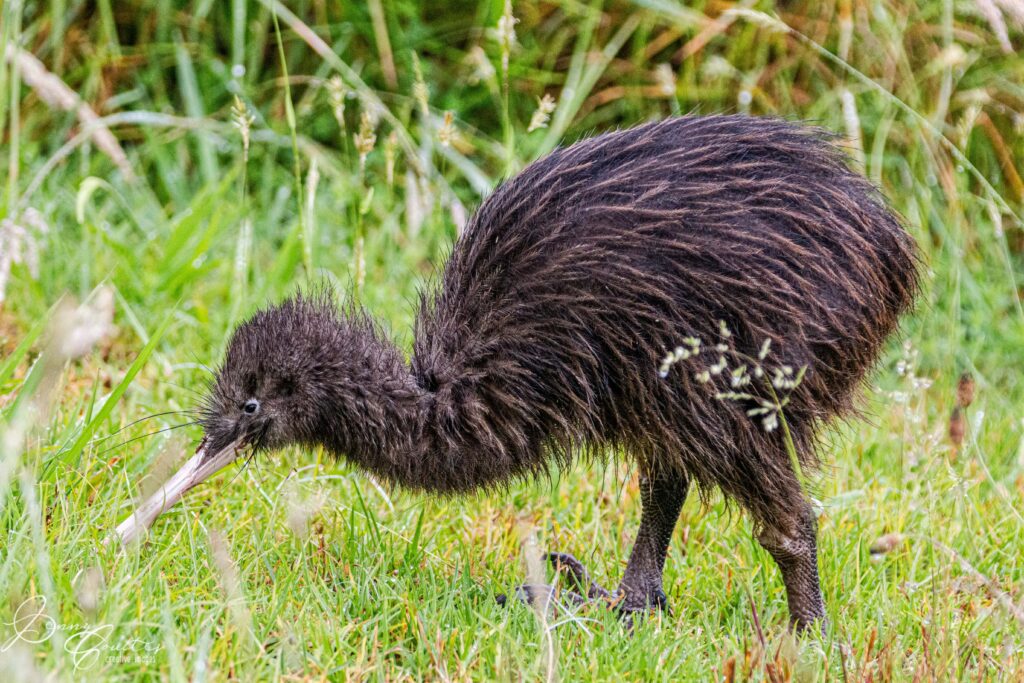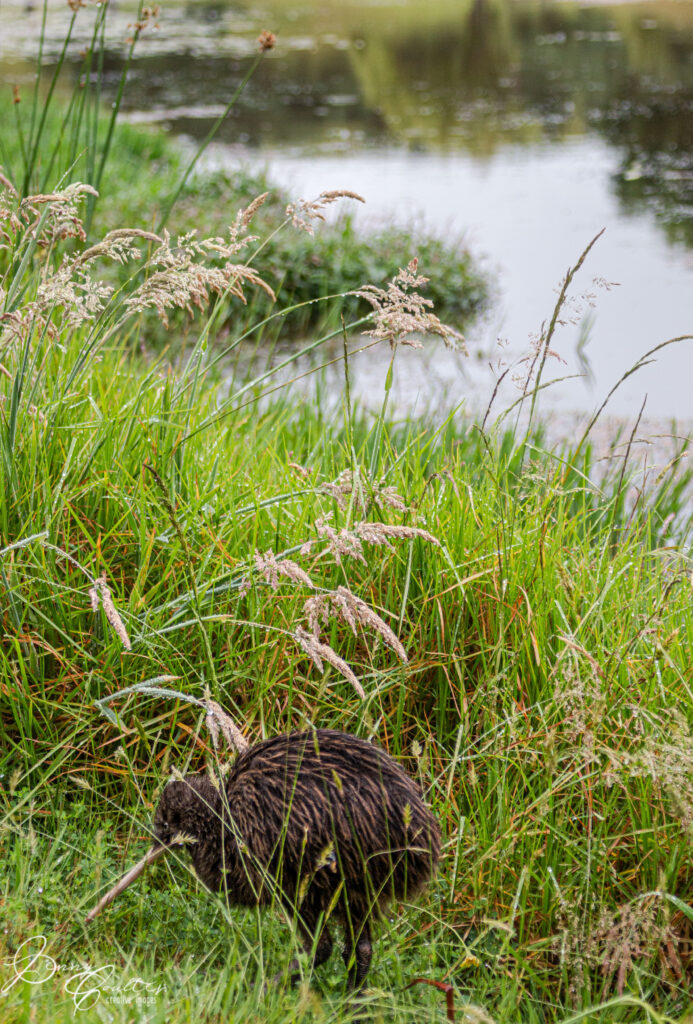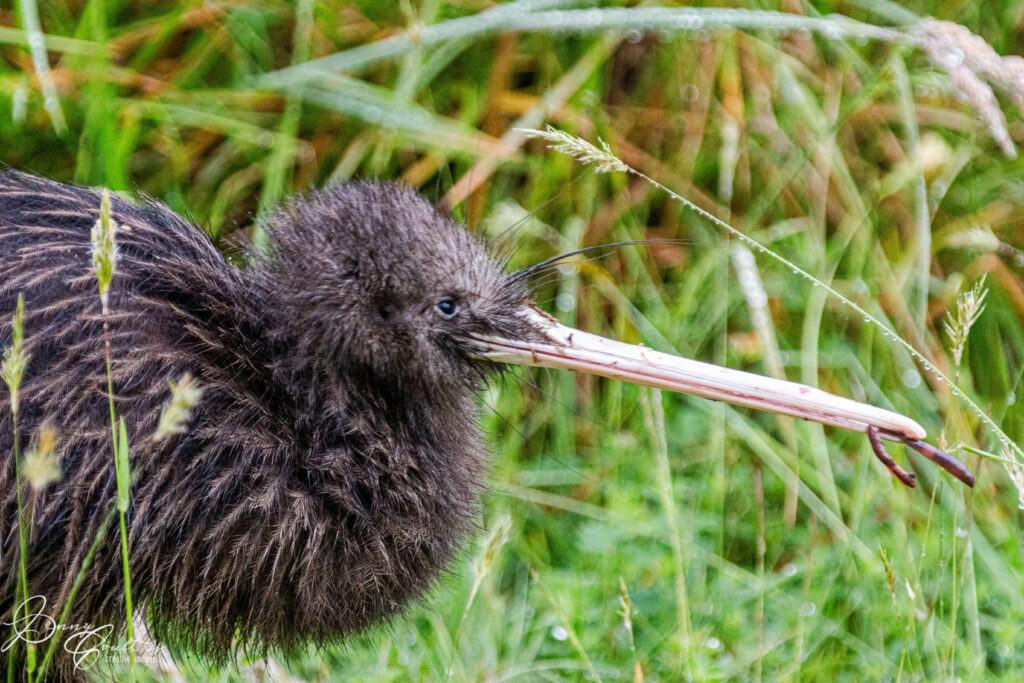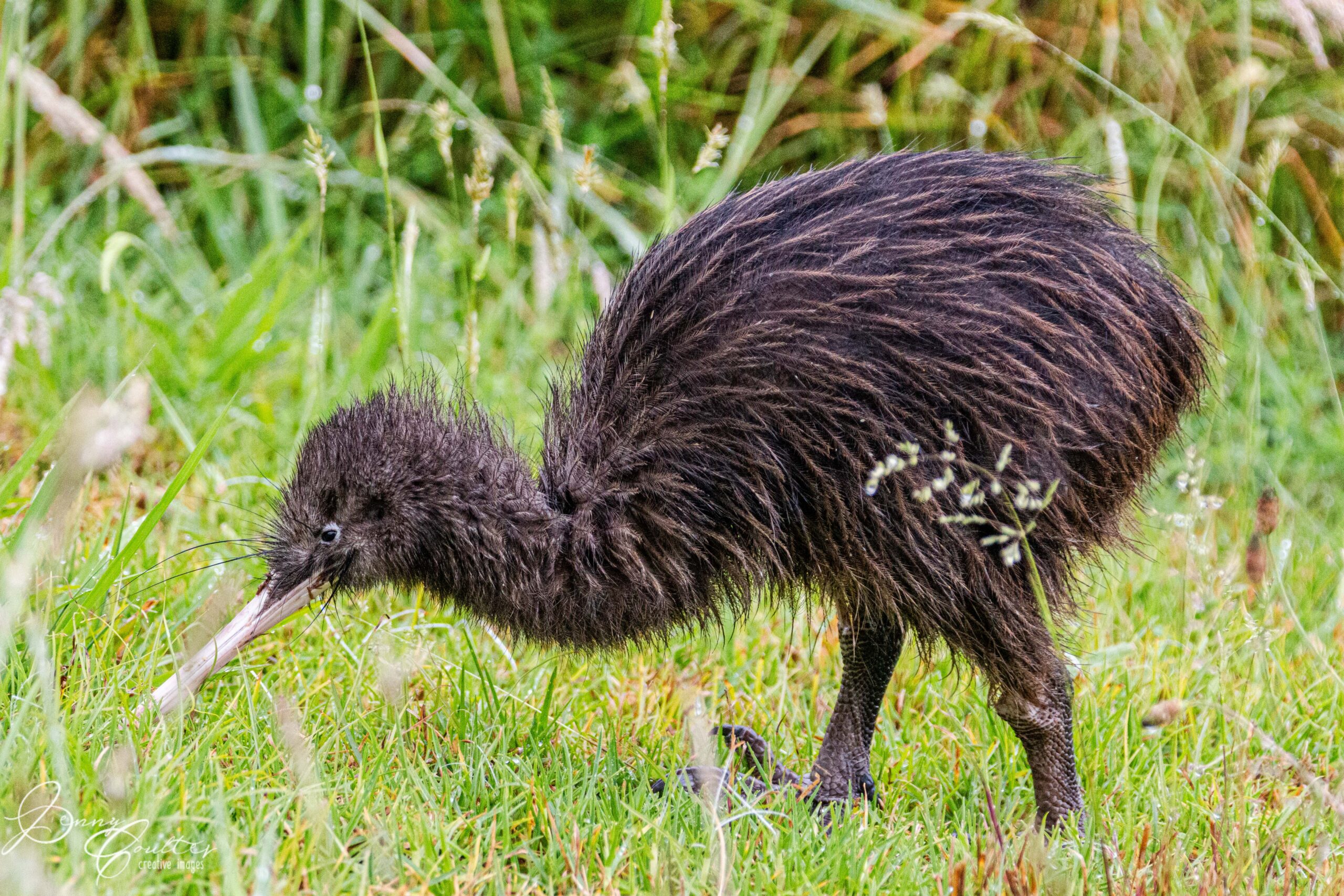As the days get hotter and longer, spare a thought for our feathered friends and help keep kiwi safe this summer.

Kiwi are already being seen out and about during the day, even though summer has only just begun – like this one spotted at Rangihoua and photographed by Jenny Coulter and Robert Burling last week!
The ground is already drying up, making it more difficult for kiwi – especially chicks with their shorter, softer bills – to probe the ground for food. As the nights get shorter there is also less ‘dark time’ for kiwi to forage.

Consequently, kiwi are out feeding for longer and are on the move to search for damper ground and water sources. This means they may be out and about during the evening or early mornings, and where you may least expect to find them.
Keeping your dog on a lead when in and around kiwi areas becomes even more crucial over summer. Dedicated dog owners out walking their dogs have already had some surprising kiwi encounters, as dog owners also make use of that cooler morning and evening time to exercise their canine companions. One dog walker at Whangarei Heads fortunately had their dog on a lead when a kiwi was spotted in some long grass. Their good dog control prevented a kiwi death when they were able to quickly pull their curious dog back.
After hatching from September on, young naïve chicks are out and about too as they venture into the big world alone. These little guys can be almost anywhere. Some kiwi ‘Dads’ are still incubating too, vulnerable on their nest, and their very young chicks are hatching right as holiday visitors arrive and daylight hours peak.

If you have visitors from out of the region with dogs, please make sure they are aware of our free-ranging kiwi and always control their dogs.
In hot and dry conditions sometimes kiwi, especially young birds, do not cope too well. Food becomes scarce as invertebrates head deeper into the soil layers beyond even the reach of an adult kiwi’s long bill. Hungry kiwi spend more time looking for food (sometimes 13 hours a night) so are more vulnerable. When water supplies dwindle it becomes even narder. Most moisture required by kiwi is found in their diet of bugs, worms, nymphs, berries etc., but when food is hard to find and water is not available, they can dehydrate fast.
If you see a kiwi out during daylight hours and it is not sheltering from the sun, seems immobile or in trouble, please call the DOC hotline or Kiwi Coast for advice. Please do not stress the bird by trying to catch it. They can be really unwell and need experienced kiwi practitioners to handle them safely without causing an injury. Often they are dehydrated and need veterinary care and then some time at the Kiwi Coast Rehab Centre to recover.
Working together with a bit of thought, a dog lead and maybe the odd rainy day sprinkled amongst the lazy summer days, we can all have a great ‘kiwi summer’.
Huge thanks to Jenny Coulter and Robert Burling for sharing their amazing photos and helping to keep kiwi safe.



